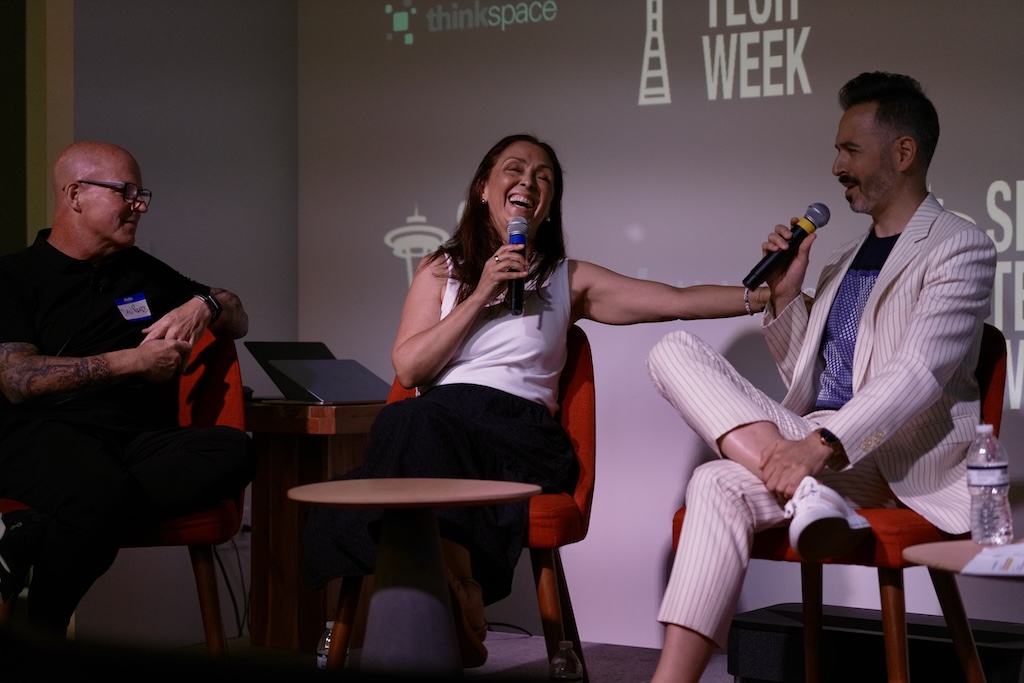 Passion is the first thing you hear about when you talk with people that are really happy doing what they love. I’ve read books from Gary Vaynerchuk like “Crush It” which focuses on doing what you love and have a passion for. I even wrote a blog post on “Crush It! Living Your Passion or Earning a Living“. I still believe that you need to have that passion, but, it’s no longer just about my passion.
Passion is the first thing you hear about when you talk with people that are really happy doing what they love. I’ve read books from Gary Vaynerchuk like “Crush It” which focuses on doing what you love and have a passion for. I even wrote a blog post on “Crush It! Living Your Passion or Earning a Living“. I still believe that you need to have that passion, but, it’s no longer just about my passion.
Following Your Passion Alone is Selfish
If you’re a solopreneur or a one person show you can get away with an attitude of I’m just doing my passion. However, I’ve learned that if you have a team of people you’re going to need to make sure that there’s something for each of your team to latch on to — a passion that they can share. For me, it keeps coming back to core values and staying aligned with those set of core values (to which you hire and fire by) then you can have a place where people are passionate about where they work.
Passion Is Not Enough
Every entrepreneur, startup, small business owner, starts out their business with a herculean effort and a mountain of passion. I started that way with thinkspace and was that way with every job that I have ever had. It all centered around passion. Right after you recognize that you have a solid business idea and start to understand that there is a big market opportunity. You’re willing to sleep on your couch in your office and eat take out six days a week. It does require that kind of initial push, but, it’s not something that you can sustain.
Momentum
In order to be successful in business you have to have momentum. To describe momentum, I have to quote Jim Collins.
“Now picture a huge, heavy flywheel. It’s a massive, metal disk mounted horizontally on an axle. It’s about 100 feet in diameter, 10 feet thick, and it weighs about 25 tons. That flywheel is your company. Your job is to get that flywheel to move as fast as possible, because momentum—mass times velocity—is what will generate superior economic results over time.
Right now, the flywheel is at a standstill. To get it moving, you make a tremendous effort. You push with all your might, and finally you get the flywheel to inch forward. After two or three days of sustained effort, you get the flywheel to complete one entire turn. You keep pushing, and the flywheel begins to move a bit faster. It takes a lot of work, but at last the flywheel makes a second rotation. You keep pushing steadily. It makes three turns, four turns, five, six. With each turn, it moves faster, and then—at some point, you can’t say exactly when—you break through. The momentum of the heavy wheel kicks in your favor. It spins faster and faster, with its own weight propelling it. You aren’t pushing any harder, but the flywheel is accelerating, its momentum building, its speed increasing. This is the Flywheel Effect. It’s what it feels like when you’re inside a company that makes the transition from good to great.”
Without momentum, even the simple tasks can seem insurmountable. But with momentum on your side, the future looks brighter, obstacles appear small, and trouble seems like speed bumps.
Small Wins Pave the Way for Big Wins
While I like crushing 300 yard drives and have an attitude of go big or go home, it’s not the best way to run your business if you have to constantly jack one out of the park in order to be successful. It’s really about the small wins which build confidence and produce visible results. Recently for us, it’s been a series of wins over the last few months which has got me feeling like we’ve got momentum moving in our direction. Things are starting to fall into place. Wins that I didn’t see as being a possibility are now just happening. These recent wins are the result of the team’s hard work over a long period of time. Some wins are over the span of a few years.
How have you been able to create momentum for your business? I would love to hear from you about when you knew you had momentum.
